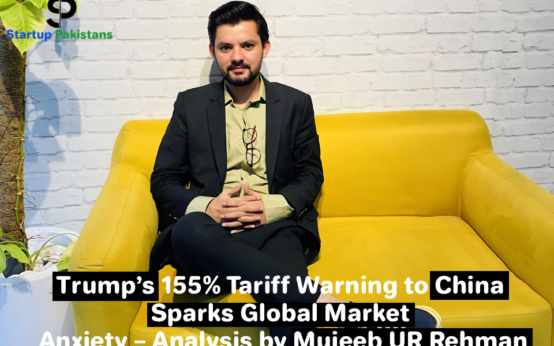In a bold and unprecedented move, Pakistan has announced the allocation of 2,000 megawatts (MW) of power to support Bitcoin mining and AI data centers. As global markets evolve toward decentralized technologies and artificial intelligence, this development positions Pakistan at the crossroads of innovation and controversy.
To dissect the implications of this decision, a live Twitter (X) Space will be held on May 31, 2025, at 11:00 AM (GMT -4) featuring:
- Host: Shoaib UR Rehman, Senior Blockchain Researcher
- Guest: Mujeeb UR Rehman, Blockchain & Crypto Advisor
These seasoned professionals will unpack the economic, environmental, and technological ramifications of Pakistan’s leap into high-performance computing infrastructure.
What Does 2000 MW Really Mean?
To put it in perspective, 2,000 MW is enough electricity to power over 2 million homes. Redirecting this much energy toward mining and data operations is a massive undertaking, signaling Pakistan’s intent to join the ranks of countries like the UAE, Kazakhstan, and the USA, where similar large-scale initiatives are already underway.
But this move also comes with critical questions:
- Can Pakistan’s grid handle the pressure?
- Will this strain local electricity access?
- What regulatory frameworks are in place to ensure sustainability?
Why Bitcoin Mining and AI?
Bitcoin mining has matured from being a fringe activity to a full-fledged industry. With the growing importance of proof-of-work security, Bitcoin continues to be the gold standard of decentralized finance. Mining, however, is energy-intensive, making affordable electricity a key competitive advantage.
Meanwhile, AI data centers are becoming the new oil wells of the digital age. From natural language processing and healthcare to autonomous systems and big data analytics, AI requires robust computational resources — often powered by GPUs and high-density server farms.
By linking these two sectors, Pakistan is betting on dual future tech growth:
- Decentralized finance (DeFi) infrastructure
- Scalable artificial intelligence capabilities
A Step Toward Becoming a Regional Tech Hub?
Pakistan has the opportunity to leverage its geographic location and labor market to attract global investors. The 2,000 MW allocation could draw Web3 startups, AI labs, and mining companies looking for low-cost, high-efficiency locations.
However, this potential can only be unlocked through clear policies, investor protection laws, and reliable infrastructure.
What About Environmental Impact?
This is where the controversy heats up.
Bitcoin mining has long been criticized for its carbon footprint, with countries like China banning it altogether due to environmental concerns. Pakistan, already facing energy shortages in some regions, must tread carefully. To make this plan viable, the government will need to:
- Prioritize green energy (solar, hydro, wind) for mining operations
- Implement energy offset programs
- Develop public-private partnerships for renewable innovation
In fact, energy sustainability may become the deciding factor between success and backlash.
What the Experts Say — Sneak Peek of the AMA

Shoaib UR Rehman, a respected name in blockchain research, brings a deep understanding of how technology shapes national economies. With years of experience advising tech startups and government think tanks, Shoaib is well-positioned to analyze the macroeconomic impact of this energy allocation.
Mujeeb UR Rehman, an early adopter and consultant in the crypto space, has advised numerous Web3 projects across the MENA and South Asian regions. His perspective will focus on use cases, risk management, and the scalability of such ambitious energy deployments.
Together, they’ll explore key questions in the Twitter Space:
- Is Pakistan ready for Web3-scale infrastructure?
- How can local communities benefit from these initiatives?
- What lessons can be learned from similar projects globally?
Why This Matters for Investors, Developers & Policymakers
If executed well, this move could transform Pakistan into a regional leader in crypto and AI. It could foster job creation, encourage tech education, and spark innovation in underdeveloped areas. Additionally, blockchain mining farms and AI servers might open up local economies, particularly in areas with underutilized energy resources.
But the risks are also real. Mismanagement could lead to:
- Increased blackouts and energy inflation
- Environmental degradation
- Crypto corruption and capital flight
- Loss of public trust in digital initiatives
That’s why thoughtful dialogue, such as the upcoming Twitter Space, is crucial.
Join the Live Discussion — Twitter Space Details
Date: May 31, 2025
Time: 11:00 AM (GMT -4)
Host: Shoaib UR Rehman
Guest: Mujeeb UR Rehman
Set your reminder on Twitter and be part of the conversation.
Final Thoughts
Pakistan’s 2,000 MW allocation to Bitcoin and AI could be a turning point — or a cautionary tale. Whether you’re an investor, developer, regulator, or enthusiast, this conversation offers a valuable window into the future of tech policy, energy economics, and digital sovereignty.
Don’t miss it.



 <strong>Omer Mubeen Leading Pakistan’s 2025 eCommerce Breakout</strong>
<strong>Omer Mubeen Leading Pakistan’s 2025 eCommerce Breakout</strong>  <strong>Sehrish Ali Sets a New National Benchmark With Global Digital Awards 2025</strong>
<strong>Sehrish Ali Sets a New National Benchmark With Global Digital Awards 2025</strong>  Talha Sajid Wins “Best SEO Service Provider” Award at GDA 2025
Talha Sajid Wins “Best SEO Service Provider” Award at GDA 2025  Pakistan eCommerce Association Hosted the Global Digital Awards 2025 Powered by Delogics
Pakistan eCommerce Association Hosted the Global Digital Awards 2025 Powered by Delogics  Trump’s 155% Tariff Threat to China Hits Global Markets | Analysis by Mujeeb UR Rehman
Trump’s 155% Tariff Threat to China Hits Global Markets | Analysis by Mujeeb UR Rehman  <strong>Mujeeb UR Rehman Joins Global Web3 Leaders with Crunchbase and EverybodyWiki Profiles</strong>
<strong>Mujeeb UR Rehman Joins Global Web3 Leaders with Crunchbase and EverybodyWiki Profiles</strong>